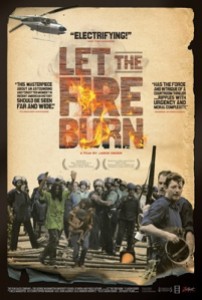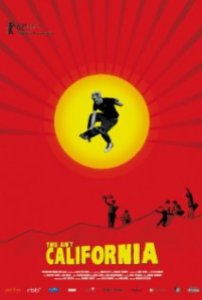Let the Fire Burn (2013 film)
Did you know city leaders in Philadelphia once bombed a residential apartment? How did we collectively forget one of the largest cities in the United States once decided to murder its own people?
MOVE was a bizarre radical origination led by John Africa. Its members destroyed sidewalks in order to plant and harvest the land, they called out on a bullhorn all night detailing their grievances with Philadelphian leadership, and several members were convicted in the 1978 murder of a city police officer.
In 1985, when city officials attempted to evict MOVE, the situation escalated until a city official inexplicably ordered dynamite to be dropped on the building, and as the resulting fire raged out of control, the city’s fire chief commanded his subordinates to “let the fire burn.”
This documentary uses archival footage and local news programs to examine what led to such a horrifying decision. Hoping this was an elaborate mockumentary, I kept thinking there was a punchline coming, it never came.
The city of Philadelphia dropped a bomb on a residential apartment complex which housed a radical fringe group.
MOVE advocated crazy ideas, but the murder of citizens is inexcusable, and the incident is a stain on the city of Philadelphia.
This Ain’t California (2012 film)
This documentary suggests the popularity of skater culture in East Berlin during the 1970s and 1980s helped spread Western ideals and contributed to the fall of the Berlin Wall.
It’s an interesting look at how cultural ideas spread. A minor subculture was able to transmit certain truths around the world and have a profound impact on global relations.
The Lady in Number 6: Music Saved My Life (2013)
When Alice Herz-Sommer died in early 2014, she was, at 110, the oldest living Holocaust survivor. Her ability to play the piano led to preferential treatment in the concentration camps which saved her life. The Germans needed Jews who could play musical instruments, so when outside visitors came to the camps, the officers could point to their music as a sign of how humanely the prisoners were treated.
Few people live to be 110, but Alice didn’t rest in her old age. In the final year of her life, she practiced the piano three hours a day.
Despite her struggles, she was full of happiness, marveling at the extraordinary life she’d been given. As a child, Gustav Mahler and Franz Kafka were among her family’s friends and her son was a celebrated musician until his death in 2001 at the age of 61.
Nearing the end of her life, Alice remained optimistic, “I look at the good. When you are relaxed, your body is always relaxed. When you are pessimistic, your body behaves in an unnatural way. It is up to us whether we look at the good or the bad.”
Sadly a few days before this film won the Academy Award for Best Short Documentary, Alice passed away. Like all of us, she only lived once, but unlike too few of us, she made her once count.


